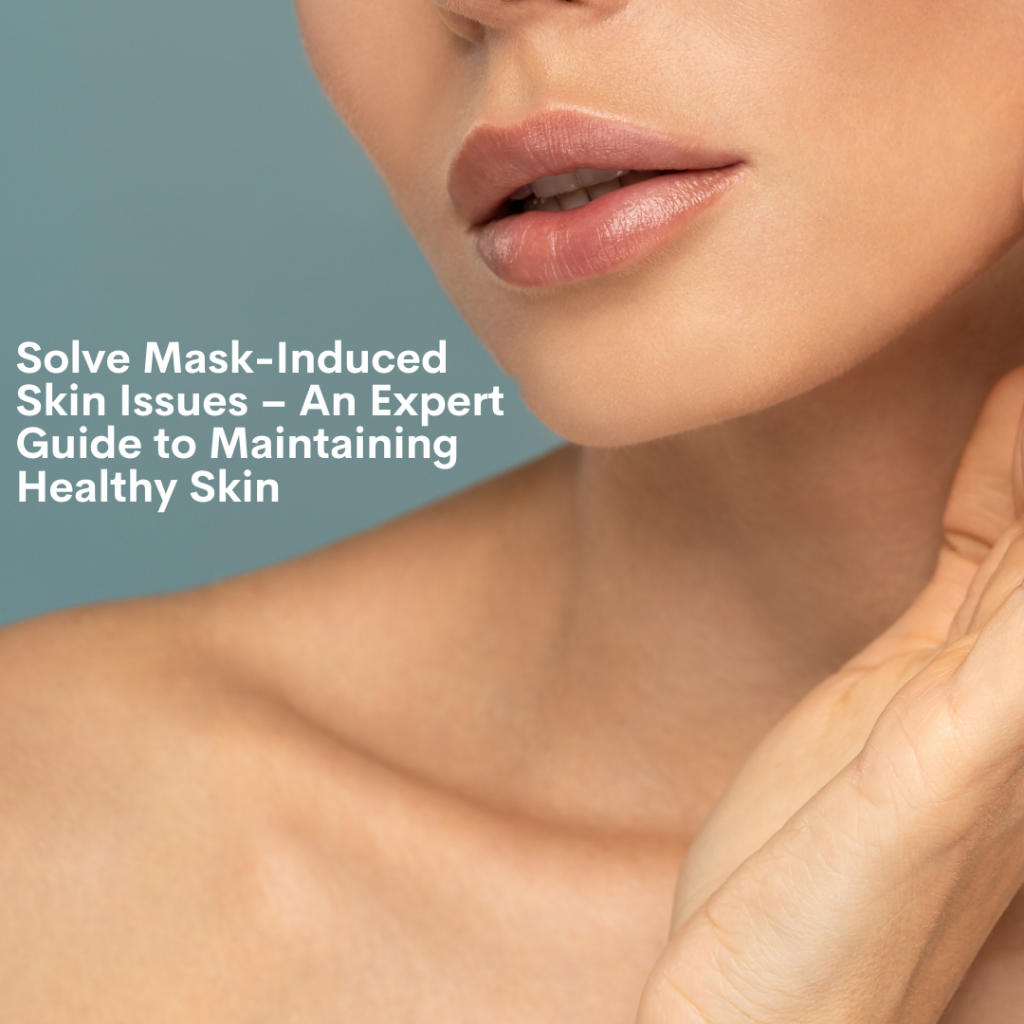
Solve Mask-Induced Skin Issues – An Expert Guide to Maintaining Healthy Skin
Introduction: Unveiling the Impact of Face Masks on Skin Health
In the contemporary landscape where face masks have become an essential accessory, an unexpected consequence has emerged - the prevalence of skin issues linked to their usage. From 'maskne' (mask-induced acne) to irritation and sensitivity, the skin underneath these protective layers is often neglected, leading to various dermatological concerns. This comprehensive guide delves into the heart of these issues, offering practical and effective strategies to mitigate and treat the skin problems associated with mask wearing.
Common Skin Problems Caused by Face Masks
Wearing face masks, especially for prolonged periods, can lead to a spectrum of skin problems. The most notorious among these is 'maskne' – acne that develops in areas covered by the mask. This condition arises from a combination of factors such as friction, heat, and moisture trapped under the mask, creating a perfect breeding ground for bacteria. Apart from acne, other common issues include skin irritation, redness, and exacerbation of existing skin conditions like rosacea and eczema. Understanding these problems is the first step towards formulating an effective counter-strategy.
Prevention and Treatment of Mask-Induced Acne
To combat mask-induced acne, a two-pronged approach involving prevention and treatment is essential. Prevention begins with choosing the right mask - opt for a soft, breathable fabric like cotton which reduces skin friction. Incorporating a gentle, non-comedogenic cleanser into your daily routine can help remove oil and bacteria build-up. For treatment, products containing salicylic acid or benzoyl peroxide can be effective in targeting acne-causing bacteria. Additionally, incorporating a lightweight, oil-free moisturizer helps maintain the skin's barrier without clogging pores.
Soothing Mask-Induced Irritation: Best Skincare Ingredients
When it comes to soothing mask-induced irritation, the choice of skincare ingredients plays a pivotal role. Ingredients like aloe vera and chamomile possess anti-inflammatory properties, making them ideal for calming irritated skin. Hyaluronic acid, with its exceptional moisture-retaining capabilities, can alleviate dryness caused by masks. For those experiencing increased sensitivity, niacinamide is a noteworthy ingredient due to its skin barrier-strengthening and redness-reducing properties. Integrating these ingredients into your skincare regimen can significantly diminish irritation and promote skin health.
Mask Hygiene: Frequency of Change or Cleaning
The hygiene of the mask itself is a critical aspect in preventing skin issues. Disposable masks should be replaced daily, while reusable fabric masks require regular cleaning - ideally after each use. Using a gentle, fragrance-free detergent for washing fabric masks can prevent potential skin irritants. This practice not only maintains the effectiveness of the mask in filtering particles but also minimizes the risk of skin problems by reducing the accumulation of oils, sweat, and bacteria.
Choosing the Right Mask Material for Sensitive Skin
For individuals with sensitive skin, selecting the appropriate mask material is crucial. Fabrics like silk and 100% cotton offer a softer, more breathable alternative, reducing the potential for irritation and friction-related issues. Silk, in particular, is known for its hypoallergenic properties, making it a suitable option for those prone to allergies or skin reactions. It's also important to avoid synthetic materials like polyester, which can trap heat and moisture, exacerbating skin sensitivities. Remember, the gentler the material on your skin, the lesser the likelihood of irritation.
Additional Skincare Strategies for Mask Wearers
Incorporating specific skincare routines can significantly benefit mask wearers. Begin with a gentle cleanser to remove impurities and excess oil. Follow this with a hydrating toner or serum, particularly ones containing hyaluronic acid or glycerin, to maintain skin hydration. To address mask-related dryness, apply a nourishing moisturizer. If you're dealing with hyperpigmentation, ingredients like vitamin C or licorice root extract can be effective. It’s also advisable to minimize heavy makeup use under masks, as this can clog pores and intensify skin issues.
Nighttime Skincare and Hygiene Tips for Reusable Masks
Nighttime skincare is crucial after a day of mask-wearing. A routine focused on deep cleansing, soothing, and repairing the skin can help counteract any negative effects from mask usage. Use a gentle, yet effective cleanser to thoroughly clean the skin. Applying a restorative night cream or serum enriched with ingredients like ceramides or peptides can aid in skin repair. Don’t forget to regularly wash your reusable masks with a hypoallergenic detergent, ensuring they are dry and clean for the next use.
Conclusion: Key Takeaways for Quick Reference
- Understand Skin Issues: Recognize that 'maskne', irritation, and sensitivity are common problems due to trapped moisture, friction, and bacteria.
- Skincare Routine Adaptation: Incorporate gentle, non-comedogenic products, focusing on ingredients that combat irritation and maintain hydration.
- Mask Material Matters: Choose soft, breathable fabrics like cotton or silk, especially if you have sensitive skin.
- Mask Hygiene Is Essential: Cleanse or replace your mask regularly to prevent the build-up of oils, sweat, and bacteria.
- Nighttime Care: Implement a soothing and repairing nighttime skincare routine to rejuvenate your skin after mask use.

